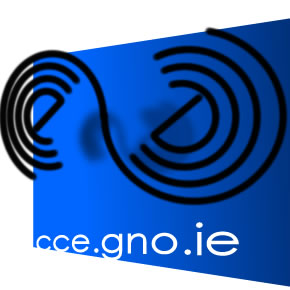Independent Radio Broadcasters of Ireland ask for public funding
 The IBI (Independent Broadcasters of Ireland) have published a document on the funding of broadcasting in Ireland. Speaking at the launch Scott Williams chairperson of the IBI said "Broadcasting remains one of the few sectors where unfair competition from a State-owned entity continues to distort the marketplace." Irish broadcasting has been deregulated since the late 1980s when local and national independent radio began broadcasting. At the time the then Minister of Communications and Justice, Ray Burke, limited RTÉ's sale of advertising and refused to increase the Licence Fee.
The IBI (Independent Broadcasters of Ireland) have published a document on the funding of broadcasting in Ireland. Speaking at the launch Scott Williams chairperson of the IBI said "Broadcasting remains one of the few sectors where unfair competition from a State-owned entity continues to distort the marketplace." Irish broadcasting has been deregulated since the late 1980s when local and national independent radio began broadcasting. At the time the then Minister of Communications and Justice, Ray Burke, limited RTÉ's sale of advertising and refused to increase the Licence Fee.
The policy document launched by the IBI is asking for recognition of the public service broadcasts provided by Local Radio (currently local radio has a set of public service broadcasting commitments to meet in relation to News and Current Affairs), that the new Broadcasting Levy pays for the BAI directly rather then having broadcasters pay for the regulator out of their own funding (the BAI predecessors the BCI and the IRTC were funded from the exchequer for 20 years), limiting RTÉ commercial remit and to develop funding for public service broadcasting on independent commercial radio.
Scott Williams goes on to say "Twenty-three years ago RTÉ had 100% of the radio audience and received 100% of the license fee. Today, RTÉ has 30% audience share and still receives 100% of the license fee." However RTÉ Radio only receives 19% of the licence fee as RTÉ Television receives the lions share of the licence with 58%, RTÉ Performing Groups receive 6% of the licence fee, with around 12% of funding going toward the BAI on both funding of the regulator and also on the Sound and Vision Fund, which helps to support broadcasting in the commercial sector. RTÉ also provide programming towards TG4, while RTÉ RnaG does not carry any advertising, RnaG receives 6% of the licence fee.
Scott Williams also points to the BBC saying "The BBC is wholly funded by the British taxpayer and has no commercial revenue. RTÉ, on the other hand, has dual funding, receiving 100% of the TV licence fee while simultaneously aggressively seeking revenue from commercial advertising." However the BBC have a large catalogue of programming, which they sell on an international basis, while their subsidiary BBC Worldwide owns many international commercial television channels and has a 50% share in UKTV, which carry advertising.
